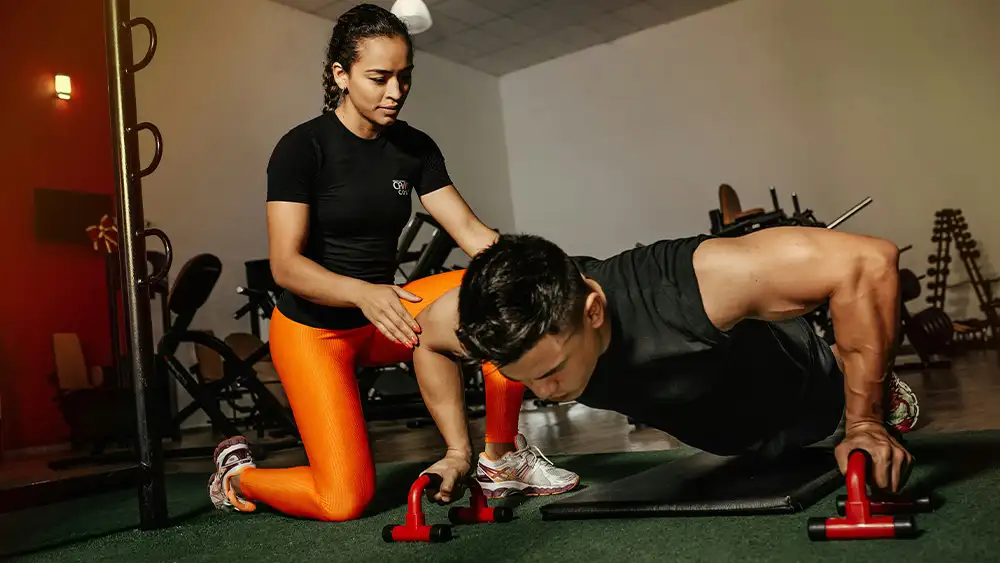Best Continuing Education Courses for Personal Trainers

Staying current is crucial for personal trainers who want to grow professionally and deliver the best results for their clients. Continuing education offers a path to deeper knowledge, specialized skills, and new career opportunities. Whether you’re aiming to refine your training techniques, explore new niches, or increase your earning potential, the right courses can make a significant difference. From nutrition coaching to corrective exercise, these programs help trainers stand out in a crowded market.
Here are some of the best continuing education courses for personal trainers today.
1. Corrective Exercise Specialist (CES)
The Corrective Exercise Specialist course, offered by organizations like the National Academy of Sports Medicine (NASM), is ideal for trainers looking to deepen their understanding of injury prevention and muscular imbalances. This course provides a comprehensive approach to assessing movement patterns and implementing corrective strategies to restore optimal function. With more clients dealing with posture issues, sedentary lifestyles, or previous injuries, CES training enables personal trainers to offer tailored programs that promote long-term health. It makes them more marketable to rehabilitation centers, physical therapists, and clients recovering from injuries.
2. Certified Nutrition Coach (CNC)

A growing number of clients are seeking not just fitness advice, but guidance on how to eat well and fuel their bodies properly. The Certified Nutrition Coach course, especially from reputable sources like NASM or Precision Nutrition, equips personal trainers with a solid foundation in evidence-based nutrition practices. Trainers learn how to develop personalized nutrition plans, offer meal guidance within their scope of practice, and support clients in making sustainable lifestyle changes. With obesity, metabolic issues, and dietary confusion on the rise, this credential empowers trainers to provide well-rounded services that improve wellness. Offering nutrition coaching can lead to new revenue streams, including meal planning consultations and virtual coaching programs.
3. Functional Training Specialist
Functional training helps improve everyday movement by focusing on exercises that build strength, coordination, and mobility in ways that translate to real-life tasks. Trainers studying this approach often begin by learning the mechanics of movement and how to identify imbalances in the body. A common question that arises during this training is what is anatomical position, which, in the context of functional assessment, refers to the standard posture used to describe locations and movements of body parts, like standing upright, facing forward, with arms at the sides and palms facing outward. This reference point is vital for evaluating posture and designing safe, effective training programs for clients of all ability levels.
4. Behavior Change Specialist (BCS)

Achieving long-term fitness goals often hinges on more than just workout plans; behavioral change is at the heart of sustained success. The Behavior Change Specialist course, offered by ACE and other institutions, dives into the psychology behind motivation, habit formation, and client adherence. Trainers learn strategies for setting realistic goals, improving communication, and fostering accountability. By integrating coaching principles and cognitive-behavioral techniques, trainers can help clients overcome mental roadblocks and build lasting routines. This certification is especially valuable for trainers who work with clients facing chronic conditions, weight loss struggles, or inconsistent workout habits.
5. Youth Fitness Specialist
With growing concerns around childhood obesity and sedentary behavior, there is a rising demand for trainers who specialize in youth fitness. Courses like the Youth Fitness Specialist certification from the International Sports Sciences Association (ISSA) or ACE prepare trainers to work safely and effectively with children and adolescents. These programs cover age-appropriate exercise programming, motor skill development, and safe training practices tailored to younger populations. Trainers who obtain this certification can collaborate with schools, community programs, or offer family-based training services. Specializing in youth fitness helps cultivate lifelong healthy habits in young clients and expands a trainer’s client base beyond the typical adult demographic.
6. Senior Fitness Specialist (SFS)
As the population ages, the need for knowledgeable fitness professionals who can work with older adults is growing rapidly. The Senior Fitness Specialist course, available through NASM and other leading organizations, provides in-depth knowledge about the aging process, common health issues, and safe exercise techniques for seniors. Trainers learn how to address issues like joint pain, decreased mobility, and chronic conditions such as osteoporosis and arthritis. This credential allows trainers to create supportive, customized programs that enhance the quality of life and promote independence among older clients. By focusing on this demographic, personal trainers meet a growing market demand and have the chance to make a meaningful difference in clients’ lives.
Conclusion
Continuing education is a powerful tool for personal trainers who want to advance their careers, serve diverse populations, and remain relevant in a fast-paced industry. Whether it’s mastering corrective exercise, becoming a go-to resource for nutritional guidance, or developing niche expertise in youth or senior fitness, these specialized courses provide immense value. Investing in ongoing education is about building a dynamic and future-proof career. By selecting courses that align with personal interests and market trends, trainers can position themselves as trusted experts and open the door to exciting new opportunities in the world of health and fitness.

news via inbox
Sign up and never miss out on the latest news and updates at HighStuff




